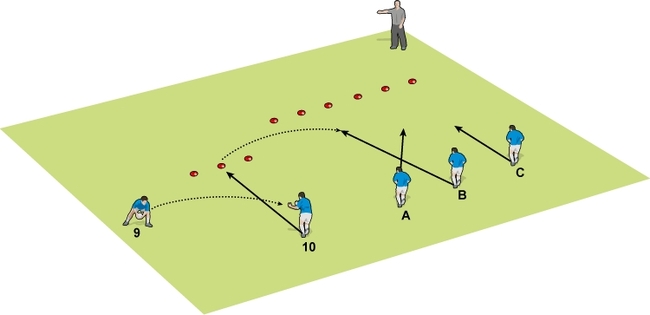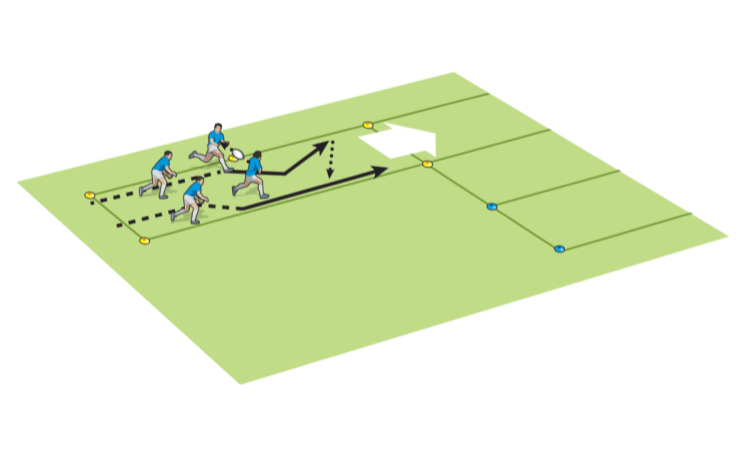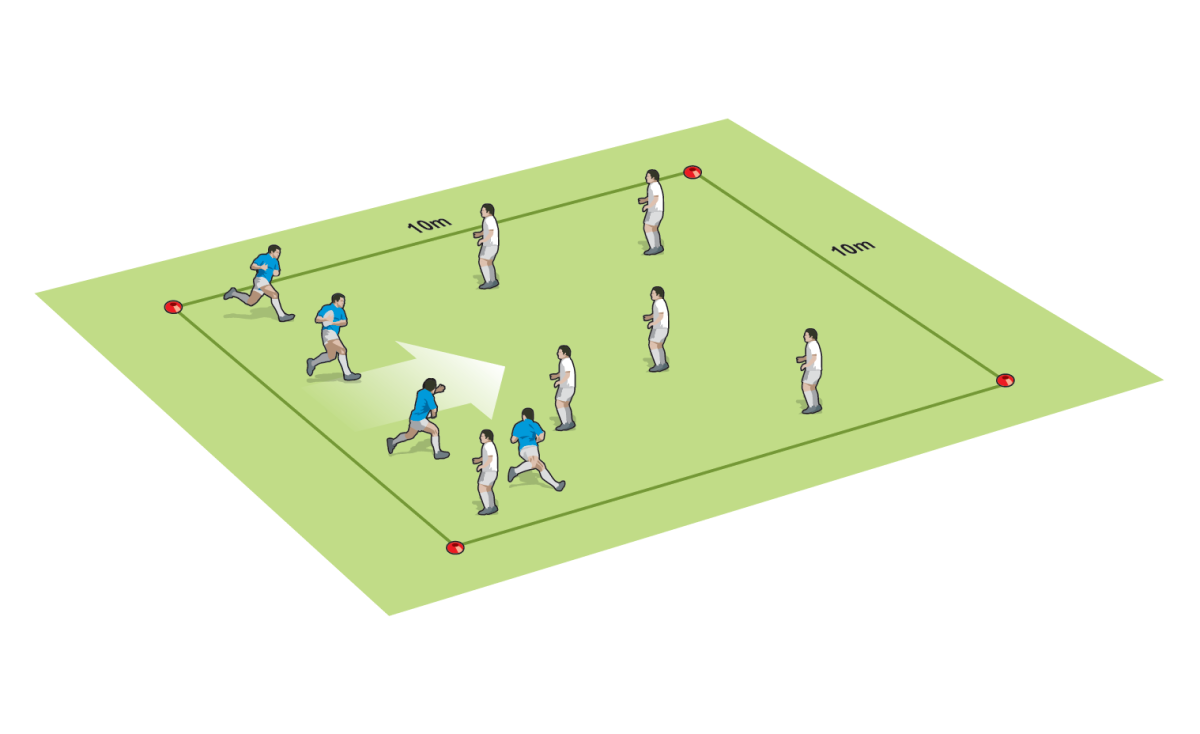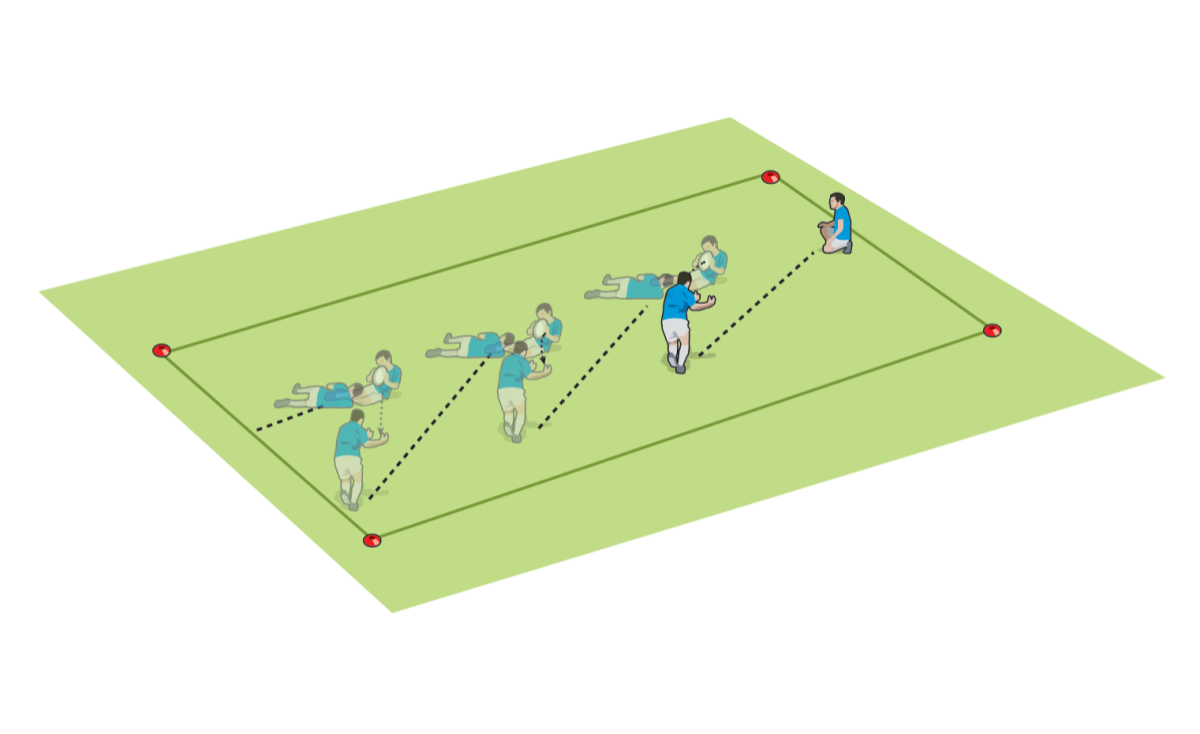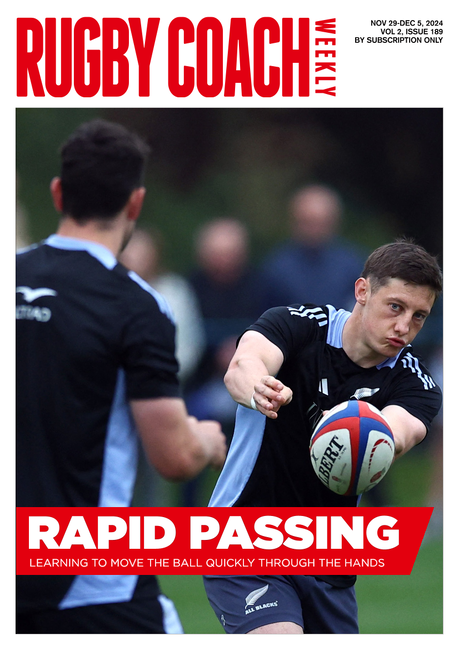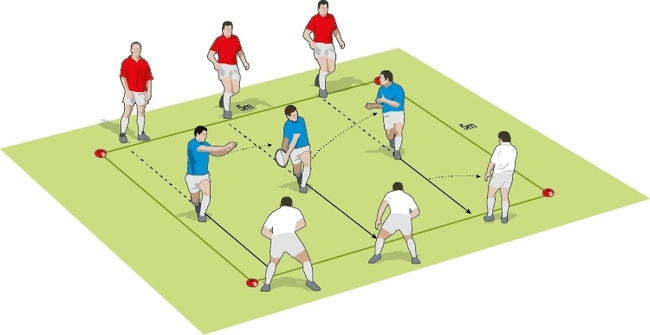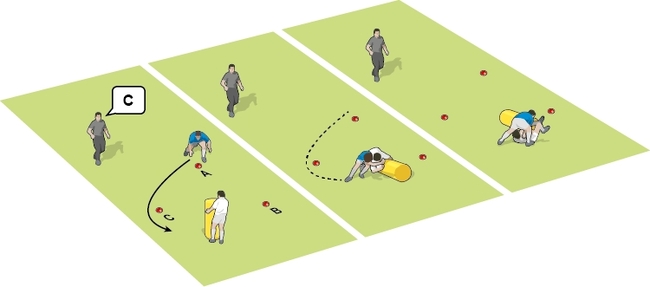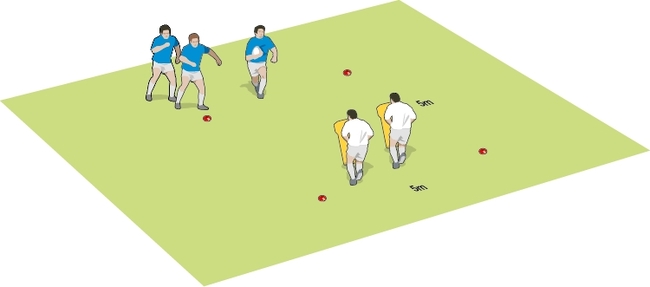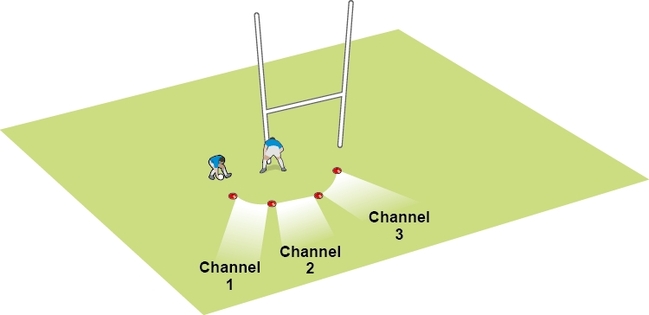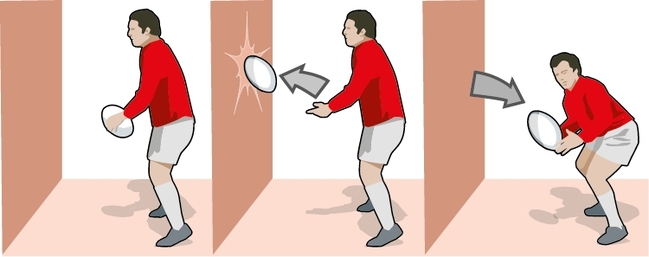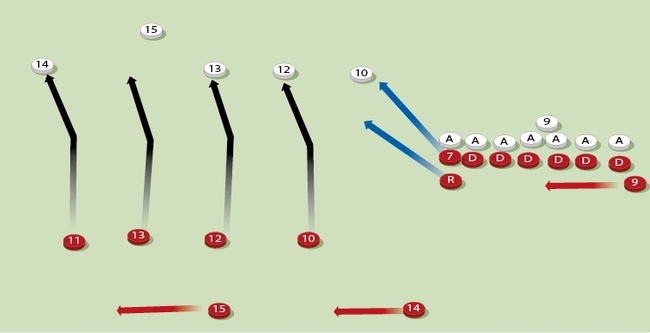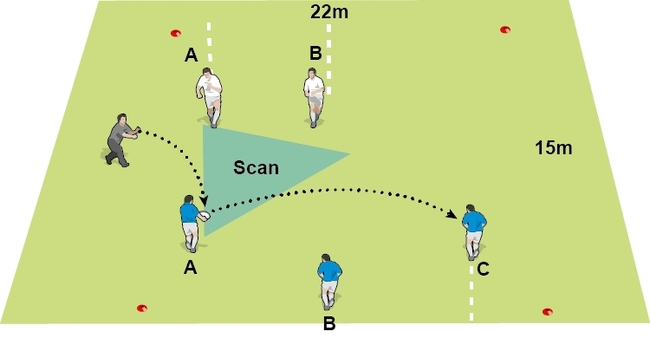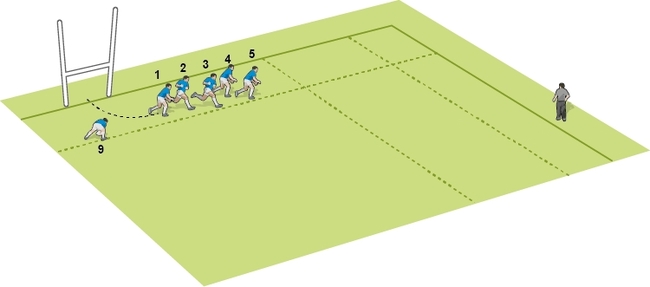Four drills to improve forwards’ handling
Close-quarter passing ability leads to fewer turnovers and greater penetration. Use this to teach players when to use which techniques. By COLIN IRELAND.
There are four basic handling requirements for forwards in and around the contact area – short passing, passing just before contact, passing out of the tackle and picking the ball up from the ground.
All require the ability to give and take passes under pressure with lots of bodies around. Coaching these requires a focus not only on technique, but communication, as well.
Drill 1 - Beating the defenders – minefield
A number of static defenders, or even tackle tubes, are in a 10m square. Groups of three or four players have to progress from one side of the square to another using only pop passes. They must not beat a defender by running past, only by making passes.
Attack from different sides of the square to represent different patterns of defence. Increase pressure by adding more defenders, or permitting defenders to touch-tackle or knock the ball in flight.
Drill 2 - In contact – bumper cars
Not illustrated
Use a similar set up to ’minefield’, above, but defenders can wear tackle suits or carry ruck pads. Attackers take contact but pass to a support player in the process. Increase pressure by allowing individual defenders to attack the ball in-contact.
Drill 3 - Off the ground – pop-up
Related Files
Set up a line of defenders on their knees in a narrow channel. An attacker runs forward and takes the first tackle. On landing, they pop up a pass to a support player who, in turn, repeats.
The attacker is now back up and supports this tackle. Work off both sides of the defenders. Introduce tackle tubes, static defenders or cones in the channel to encourage attackers and support players to move to one side or another.
Drill 4 - Pick ups
Not illustrated
The final skill needed is the pick up. If a player is unable to pass before, or out of, a tackle, their last option after being tackled will be to place the ball on the ground to be picked up by a supporter. Develop this with a variation of ’pop-up’, above. Players need to be low and use two hands to collect the ball, preferably side-on to produce a strong base to drive forward and prevent themselves falling over.
Newsletter Sign Up
Coaches Testimonials

Gerald Kearney, Downtown Las Vegas Soccer Club

Paul Butler, Florida, USA

Rick Shields, Springboro, USA

Tony Green, Pierrefonds Titans, Quebec, Canada
Subscribe Today
Be a more effective, more successful rugby coach
In a recent survey 89% of subscribers said Rugby Coach Weekly makes them more confident, 91% said Rugby Coach Weekly makes them a more effective coach and 93% said Rugby Coach Weekly makes them more inspired.
Get Weekly Inspiration
All the latest techniques and approaches
Rugby Coach Weekly offers proven and easy to use rugby drills, coaching sessions, practice plans, small-sided games, warm-ups, training tips and advice.
We've been at the cutting edge of rugby coaching since we launched in 2005, creating resources for the grassroots youth coach, following best practice from around the world and insights from the professional game.
